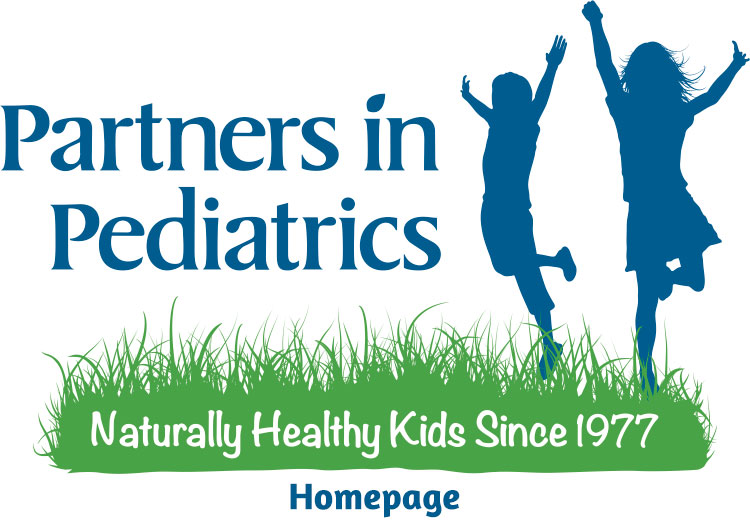In Part One of this blog, posted recently, we set forth a guide for the integrative management of children’s respiratory illnesses, whether it be the flu, bronchitis, pneumonia or the common cold. Part Two of this blog is dedicated to the important topic of the management of coughs, which appropriately warrants an entire chapter in our Naturally Healthy Kids handbook (available on Amazon as an eBook) since a cough can be one of the most uncomfortable and disruptive symptoms of a respiratory illness! So without further ado…
Causes, Expected Course and Contagiousness
Coughing is associated with several illnesses, the most common of which are colds and allergies but also include pneumonia, asthma (including exercise-induced asthma), croup, bronchitis, bronchiolitis, pertussis (whooping cough), a foreign body in the airway (this is a medical emergency, requiring a call to 911, if your child’s airway is obstructed!), sinus infection, chemical irritant (such as smoke) or a dry irritation of the back of the throat. A cough may also be triggered by the mere act of exercising, especially in cold or polluted air, even if your child is not asthmatic.
A cough usually lasts several days, until the other symptoms of an upper respiratory infection resolve, although a cough may persist for up to 4 to 6 weeks following any acute respiratory illness. A chronic cough, lasting several weeks and not improving despite relief measures taken (see below), warrants a visit to us, your Denver pediatrician and medical home, for a full evaluation. If necessary, we may recommend further evaluation by a lung specialist, allergist or ear, nose and throat (ENT) doctor.
A cough’s contagiousness depends on its trigger. If the cause of a cough is a virus, it may be easily transmitted in the air by coughing. Direct contact with oral and nasal secretions is the most common mode of transmission of a virus. Bacterial transmission through the air is also possible, but less common. All of which illustrates the importance of washing your and your child’s hands, particularly during this cold and flu season, and of teaching your child to cough into his or her arm or sleeve, rather than into a hand that is sure to touch many other people and things!

Home Care for a Cough
Barring any unusual circumstances (see the When to Call Your Health-Care Provider section, below), we recommend initially trying the following home care remedies to help provide relief from the discomfort of a cough, preserve sleep, prevent the spread of infection, and promote the return to normal activity. Please read this entire section and then select the recommendations that make the most sense for your child’s symptoms.
1) You can work to decrease mucous thickness (congestion) and production by the following means:
- Encourage your child’s intake of clear liquids, such as water, Pedialyte, Jello-O water and Sleepytime tea. Warm liquids help relax the airway and loosen mucous. You may also try warm apple juice, lemonade or tea. If at all possible, avoid milk, formula and other dairy products, which are mucous-producing. Understandably, this may be difficult in small infants who are only breast- or formula-fed. In general, breast-feeding should not be interrupted, but shorter, more frequent feedings may be easier for your infant. Use your best judgment!
- Use a cool-mist or steam humidifier or vaporizer in your child’s bedroom and/or play area. Be careful to follow the manufacturer’s instructions about frequent cleaning to avoid the buildup of chemical or mold irritants, and always monitor your child when using steam to avoid accidental burns.
- The use of decongestants is generally discouraged as they thicken the mucous, rather than allowing it to drain effectively. These drugs may even thicken mucous enough to lead to a secondary bacterial infection, such as a sinus or ear infection.
- Elevate the head of the bed to roughly a 10-degree angle by placing pillows or rolled towels under the mattress.
- If none of the above measures prove helpful, try placing your child in a steamy bathroom for 20 to 30 minutes, especially during coughing spasms. The high humidity may help shrink swollen tissues, coat a dry throat, or loosen nasal or sinus mucous
2) Although we prefer to limit cough suppressants to nighttime use only (when the cough is interfering with your child’s sleep), they can be used during the daytime if the cough is interfering with your child’s school attendance or other important daily activities. Suppressants include:
- Zarbee’s Naturals, or agave syrup, (for children under 1 year of age) or honey (only for children over 1 year of age), mixed with lemon juice in warm liquid or tea (especially Throat Coat by Traditional Medicinals).
- An OTC cough preparation containing dextromethorphan (such as Delsym) is most effective. Be sure to follow the packaging’s dosing instructions carefully or contact us if you have any questions. Specific dosing recommendations are also set forth in our Naturally Healthy Kids handbook.
- Cough drops, sucked often, will control most coughs in children over 4 years of age.
- Codeine is rarely more effective than OTC preparations and should be used only on your health care provider’s recommendation and prescription.
- Expectorants (such as guainfenesin) are generally of minimal value.

3) Do not let anyone smoke around a coughing child. This includes not exposing a coughing child to smoke-infused clothing. Teenagers should be warned AGAINST smoking in general, but particularly during an illness.
4) Outside activities should be restricted as a cough worsens. Cold air, air pollution and air breathed during high allergy seasons are common cough triggers.
5) Herbal chest rubs may help. Vicks Vaporub is also fine.
Aromatherapy
- Add 2 drops each of the essential oils of eucalyptus radiata and lavender to 1 to 2 teaspoons of olive oil and rub on your child’s chest to soothe a cough or congestion.
- Add 2 to 5 drops of eucalyptus radiata and/or lavender oils to a warm bath and allow your child to soak for a comfortable period of time. A massage using these essential oils can also help soothe a child’s anxiety, restlessness, congestion and difficult breathing.
Herbal Remedies
- Horehound may help to reduce mucous production and improve a wet cough. Follow the package labeling accurately for dosing.
- Cherry bark may be effective to reduce the duration of a dry, irritant cough. Again, follow the package labeling accurately for dosing.
- Valerian root (such as Herbs for Kids–Valerian Super Calm) may help ease a significant cough and is best used at bedtime. For dosing, follow the packaging label accurately.
- Herbal teas (made from chamomile or mint, as well as a variety of blended herbal teas, such as Sleepy Time Tea for relaxation and Throat Coat for sore throat and cough) may help soothe cold symptoms and are a good source of fluids. Brew according to package directions, sweeten to taste and offer frequently throughout the day!
Homeopathic Remedies
- A homeopathic remedy (such as ReBoost Cold & Flu Tablets by Medinatura) may help shorten the duration of a cough. It can be given 2 to 3 times a day until the cough subsides.
- A homeopathic remedy (such as Medinatura’s ReBoost Cold & Flu Tablets) may help prevent deterioration and improve recovery time. It can be taken 3 to 6 times a day for several weeks as long as the cough is improving.
- ReBoost Decongestant Nasal Spray by Medinatura can also be used to help relieve a cough stemming from a runny nose.
Bach Flower Remedies
Rescue Remedy may be used if your child has anxiety with coughing episodes. You may use 2 drops every 10 minutes to every few hours to calm restlessness, as needed.
Nutritionals and Supplements
- Vitamin A– Vitamin A may be given once a day for 1 to 2 weeks using the following dosing guidelines: 1 to 3 years–2,000 IU; 4 to 6 years– 2,500 IU; 7 to 10 years– 3,500 IU; and 11 years and up– 4,000 IU.
- Vitamin C– We recommend the use of Vitamin C in the following doses during a cold: 12 months to 2 years– 100 mg 3-4 times daily; 2 years to 5 years– 250 mg 3-4 times daily; 5 years to 10 years– 500 mg 3-4 times daily; and 10 years and up– 1,000 mg 3-4 times daily.

Dietary Guidelines
- Avoid mucous-forming foods, especially all diary products and citrus fruits and their juices. Warm foods (such as soup) and beverages (such as tea) can often provide temporary relief from a cough.
The above therapies are an important example of an integrative approach to pediatric care using complementary and alternative treatments, as well as conventional medicine. If you have any questions or concerns regarding the proper use of any of these therapies, please reach out to us for guidance or refer to the “Administering Integrated Treatments” section of our Naturally Healthy Kids handbook, available on Amazon.
When to Call Your Health-Care Provider
Although we are optimistic that the above therapies and care suggestions will prove helpful, please note the following important guidelines as to when to call your health care provider about your sick child:
1) Call IMMEDIATELY if your child experiences any of the following:
- Shortness of breath or rapid breathing rate (over 50 to 60 breaths per minute in infants or over 40 breaths per minute in children over the age of 2), especially in the absence of fever.
- Blueness of lips or fingernails.
- Long pauses between breaths (more than 5 to 10 seconds) in infants.
- Spasms that cause choking, passing out or persistent vomiting.
- Blood coughed up in sputum or mucous.
- Vomiting blood.
- Sudden onset of violent coughing in a child who might have aspirated a small object.
- Wheezing that is worsening.
- Increased work of breathing with heaving respirations and deep up-and-down chest wall excursions.
- Stridor (a harsh, breathing in sound) develops that does not respond to treatment (the Naturally Healthy Kids handbook contains recommendations for treating stridor or you are always welcome to contact us to discuss).
- Rapid onset of sharp, persistent chest pain.
- Increasing lethargy.
- Signs of increasing dehydration.

2) Call WITHIN 24 HOURS if:
- Mild wheezing is not gone in 24 hours.
- Croupy, “barking seal” type cough, with any difficulty in breathing, develops.
- There is sustained increase above normal respiratory rate for 6 hours.
- Fever lasts more than 72 hours.
- A child less than 3 months old has a cough lasting over 48 hours.
- Cough produces yellow-green discharge.
- Chest pain occurs in older children.
- You think your child has a “whooping” cough and may have pertussis, especially if not immunized.
- Cough lasts over 2 weeks.
- Cough interferes with sleep or causes several days of missed school.
So there you have it! The above information, especially when combined with the recommendations set forth in our Guide to the Integrative Management of Children’s Respiratory Illnesses blog, should prepare you to better handle Colorado’s cold and flu season. And remember, as your Denver pediatrician providing integrative pediatric care, we are always here to answer any questions or concerns you may encounter. So please don’t hesitate to contact us!



Leave a Reply